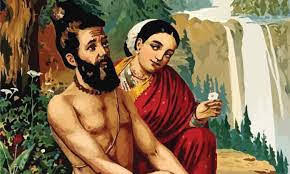Celibacy was highly regarded in old Indian society as both a symbol of holiness and a source of power.
On the one hand, since sexual desire is often a metaphor for all kinds of want, abstaining from sexual activity is an indication of abstaining from the world in general.
On a more literal level, the preservation of semen via celibacy is said to prevent a man's essential vitality from evaporating.
Semen, according to traditional Indian physiology, is distilled from blood and therefore represents the concentrated essence of a man's vitality.
While semen may and must be used for reproduction, all other losses must be carefully considered. As a result, masturbating is frowned upon.
Celibacy stores and conserves essential energy, which may subsequently be utilized for spiritual development.
- The deity Shiva, whose emblem is the linga, a pillar-shaped figure with obvious phallic connotations, is the model for the celibate ascetic.
- Shiva is the epitome of a perfect spouse and ascetic.
- As a result of his tapas, the linga symbolizes his hoarded celibacy energy (ascetic practices).
Similarly, whether a lifelong celibate (naisthika), a student (brahmacharin), or a married man who has already had children, celibacy is a means for human males to preserve their essential energy.
You may also want to read more about Hinduism here.
Be sure to check out my writings on religion here.


